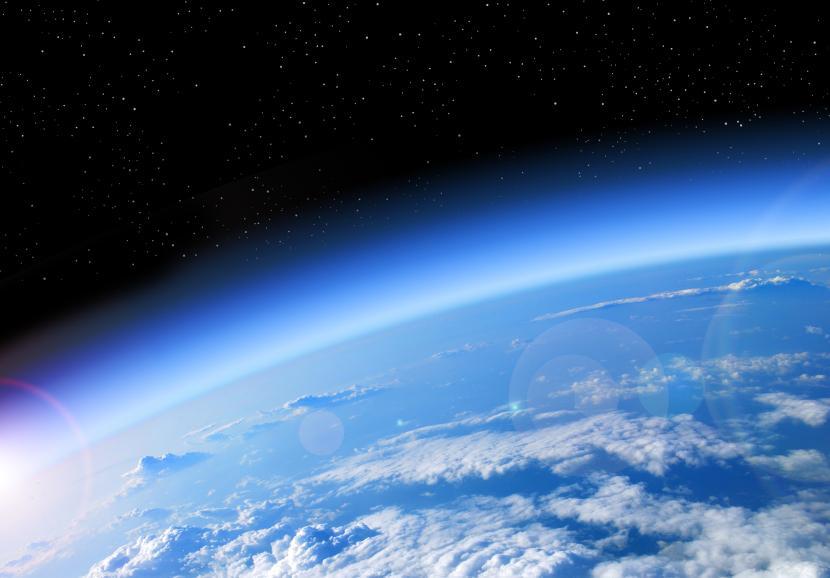Why Is Air Important to Living Things?


Air, the life-sustaining substance that surrounds us, is often taken for granted. We breathe it in without much thought, unaware of its profound significance for all living beings. While oxygen is the most recognized component of air, there are numerous other gases and compounds within it that play crucial roles in supporting life.
At thedailyECO, we delve into the depths of air's importance for living organisms, uncovering a wealth of reasons that extend beyond the obvious.
What is air?
Air, a homogeneous mixture of various gases, forms a crucial component of our planet's atmosphere. It consists primarily of nitrogen (N2) comprising approximately 78% of the total composition, followed by oxygen (O2) at around 21%. Additionally, there are trace amounts of other gases, such as argon (Ar) accounting for 0.93%. Water vapor is present in the air, constituting about 0.4%, while carbon dioxide (CO2) makes up approximately 0.035%. Negligible quantities of gases like neon, helium, methane, krypton, hydrogen, and ammonia are also found in the air.
The density of air at a temperature of 15ºC is approximately 1.23 kg/m^3. It is noteworthy that the weight and pressure exerted by air differ between sea level and higher altitudes, such as the summit of Mount Everest. Due to the gravitational force, denser particles and gases tend to be closer to the Earth's surface, while less dense ones occupy the upper layers closer to space.
Air encompasses the entire atmosphere, forming a gaseous layer enveloping our planet. The term "atmosphere" derives from the Greek words "atmós," meaning vapor, and "sphaira," meaning sphere, indicating its vapor-like nature. The atmosphere extends to a thickness of approximately 500 km and is divided into distinct regions based on their proximity to the Earth's surface: the troposphere, stratosphere, mesosphere, thermosphere, and exosphere.
You might be interested in this other article, where we discuss the differences between climate and weather.

Why is air important to living things?
Air holds immense importance for all living things due to several crucial reasons. Let's explore some of the key aspects that highlight the significance of air in supporting life:
Oxygen for respiration
Air, primarily composed of oxygen, is vital for the process of respiration in living organisms. Oxygen is essential for the production of energy through cellular respiration, enabling organisms to carry out their vital functions and activities. Without a constant supply of oxygen from the air, living beings, including humans, would not be able to survive.
Carbon dioxide and photosynthesis
While oxygen is crucial for animals and humans, carbon dioxide is equally important for plant life. Through the process of photosynthesis, plants utilize carbon dioxide from the air, along with sunlight and water, to produce glucose and release oxygen as a byproduct. This exchange of gases between plants and the air sustains the balance of oxygen and carbon dioxide in the atmosphere, making it suitable for various life forms.
Nutrient distribution
Air acts as a carrier and distributor of essential nutrients, particles, and microorganisms. Pollen, spores, and other airborne particles play a significant role in plant reproduction, promoting genetic diversity and ecosystem health. Air also facilitates the dispersal of seeds, allowing plants to propagate and colonize new areas.
Climate regulation
The air, through its composition and movement, plays a vital role in regulating Earth's climate. It absorbs and redistributes heat from the Sun, influencing temperature patterns and maintaining a habitable environment for diverse ecosystems. Air currents and atmospheric phenomena, such as winds and storms, help distribute heat and moisture, shaping weather patterns and supporting life-sustaining conditions.
Protection from radiation
The Earth's atmosphere, made up of air, acts as a protective shield against harmful ultraviolet (UV) radiation from the Sun. The ozone layer, located in the upper atmosphere, absorbs a significant portion of UV rays, safeguarding living organisms from potential harm such as skin cancer and other detrimental health effects.
Gas exchange in aquatic life
Air plays a vital role in supporting aquatic life as well. The exchange of gases between the air and bodies of water, such as oceans and lakes, ensures the availability of oxygen for underwater organisms like fish and other marine species. Oxygen dissolves in water from contact with the air, sustaining aquatic ecosystems.
Air quality and health
The quality of the air we breathe directly impacts our health and well-being. Monitoring and maintaining clean air are crucial for reducing the risks of respiratory illnesses, allergies, and other health issues associated with air pollution. Understanding air quality helps us implement measures to protect ourselves and the environment.
Do not miss this other article where we explain what a sea breeze is.
What would happen if the earth had no air?
Life on Earth would be impossible without air. If there were no air or atmosphere surrounding our planet, the consequences would be catastrophic for all forms of life:
- Absence of oxygen: without oxygen, aerobic organisms, including humans and animals, would be unable to survive. Oxygen is required for the production of energy through cellular respiration, and its absence would lead to the rapid depletion of energy reserves in living cells.
- Extinction of aerobic life: The majority of organisms on Earth rely on oxygen for their survival. Without air, aerobic life forms would quickly suffocate and perish, resulting in widespread extinction.
- Disruption of ecological balance: the absence of air would disrupt important cycles, such as the carbon cycle and the water cycle, which are vital for the functioning of ecosystems. Photosynthesis, the process by which plants convert carbon dioxide into oxygen, would cease to occur, further exacerbating the lack of oxygen and causing a significant imbalance in atmospheric composition.
- Loss of atmospheric shield: the Earth's atmosphere provides a protective shield against harmful solar radiation, particularly the ozone layer in the upper atmosphere. Without air, the planet would be directly exposed to intense solar radiation, including harmful ultraviolet (UV) rays. This would have detrimental effects on all life forms, causing DNA damage, increased risk of cancer, and disruption of ecosystems.
- Extreme temperature fluctuations: air acts as an insulator, regulating temperatures on Earth. Without air to trap and distribute heat, temperature fluctuations would become extreme. The absence of air would result in scorching hot temperatures during the day and frigid cold temperatures at night, rendering the environment uninhabitable for any form of life.
- Lack of atmospheric pressure: air creates atmospheric pressure, which is necessary for various physiological functions in living organisms. The absence of atmospheric pressure would have detrimental effects on bodily fluids, such as blood and bodily gases. This would lead to severe physiological disruptions and, ultimately, the inability of organisms to survive.
In summary, life as we know it would be impossible without air, highlighting its indispensable role in supporting and sustaining all forms of life on Earth.
You might also be interested in this other article, where we answer the question of how much of the earth is covered by water.


If you want to read similar articles to Why Is Air Important to Living Things?, we recommend you visit our Ecology (other) category.








